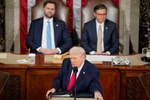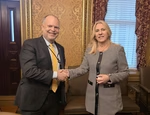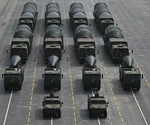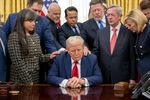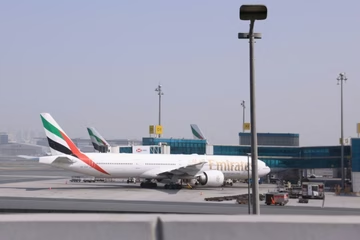
Millions of people across the United Kingdom voted on July 4 in the general elections. The Labour Party secured 410 seats in the parliamentary elections, ending the Conservatives' 14-year rule. Journalist Danica Ilic reported live from London on the election results.
If the exit polls are confirmed, Labour leader Keir Starmer will become the Prime Minister with the strongest party support in parliament since Tony Blair in 1997.
Journalist Danica Ilic emphasized that only a few seats remain to be determined. Based on confirmed numbers, the Labour Party will have 410 seats, while 326 are needed for a majority.
"Some MPs have called this massive electoral victory by the previously opposition Labour Party 'Starmer's tsunami.' However, it is essential to explain that this victory is not so much due to Labour and their political program but because voters turned out to punish the Conservative Party for their performance, or lack thereof, over the past 14 years. As things stand now, we see that voters in most places, and there are 40,000 polling stations in the UK, have voted for Labour. But in some places, they have voted for the Liberal Democrats, who will be the third strongest party, winning 68 seats. And, of course, let's not forget right-winger Nigel Farage, who, as far as confirmed and likely to remain, will have four seats in parliament. This is a significant victory for him, having previously failed to enter the British parliament. However, a big win means big expectations. As everyone says and as facts show, Starmer and his cabinet face significant problems," says Ilic.
She recalls that the Conservatives came to power in 2010 after a major financial crisis when the decline of the public sector in the UK began. Austerity measures introduced by David Cameron and George Osborne at the time meant less investment in healthcare, education, justice, and police.
"After 14 years, we can confidently say that this policy has primarily destroyed the healthcare system. Here, it takes months to see a specialist. In some places, it takes up to eight hours to get emergency assistance. These are terrible things, and the collapse of the healthcare system is perhaps the strongest image of the UK today. Then we had Brexit. Let's remember how it was led by Boris Johnson and Nigel Farage, a staunch advocate of the UK's exit from the European Union. It turned out to be a wrong move, as shown by a survey in May this year, where 55 percent of voters in the UK believed it was a mistake. Only 31% think it was good that the UK left," Ilic adds.
The disintegration of the Conservatives' reputation and the firm decision of the British electorate to turn to Labour were also influenced by numerous other events during the pandemic, a series of ethically problematic decisions characterizing Boris Johnson's government, including parties held by Johnson and his cabinet members during the lockdown.
Regarding the political plan of the new British Prime Minister Keir Starmer, many in the UK find it unambitious.
"Few expect Keir Starmer and his government to solve the problem. There are enormous problems in this country, starting with the healthcare system, inflation, and the reputation of the UK on the international political scene. For instance, next week in England and Wales, prisons will have no free spaces. When Keir Starmer becomes Prime Minister, I think this is the first thing he will have to face. What will he do when no more inmates can be admitted to prisons? This is a concrete problem. Also, the 11th strike of junior doctors will likely require negotiations to improve working conditions and possibly raise salaries. We will also have the first woman as the finance minister. Her package of measures to see how she envisions reforming the UK's economic system, which struggles with growth, will be expected. Inflation is under control, now at 2%, after being over 11% in 2022," explains Ilic.
Reflecting on the UK's relations with Western Balkan countries and Russian influence in the Balkans, Ilic highlights that Keir Starmer has been clear about the war in Ukraine, so it is expected that he will act similarly to other European partners regarding strengthening Russian influence in the Balkans.
"However, it is uncertain whether strengthening relations with the Western Balkans will be a priority. Foreign policy has bigger issues for him, like the relationship with Gaza. Some voters and analysts criticize him for not being clear enough and for his balanced stance. But when it comes to the Balkans, I think that when he takes the Prime Minister's seat, he will likely have to address that as well, and we will report if there is anything concrete," concludes journalist Danica Ilic.
Kakvo je tvoje mišljenje o ovome?
Učestvuj u diskusiji ili pročitaj komentare





 Srbija
Srbija
 Hrvatska
Hrvatska
 Slovenija
Slovenija











